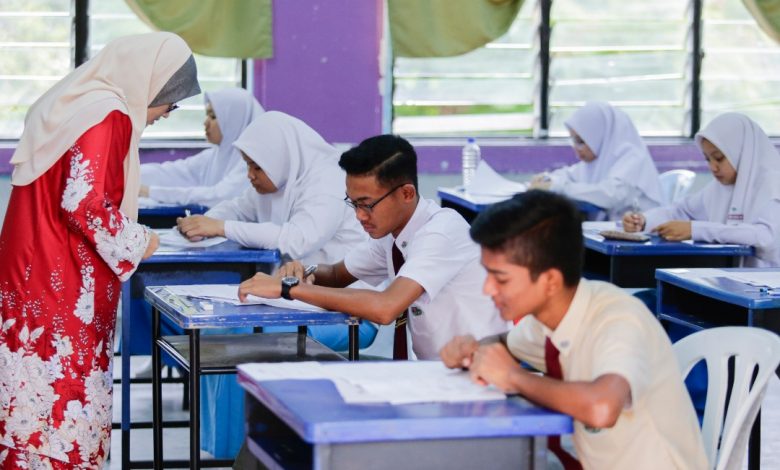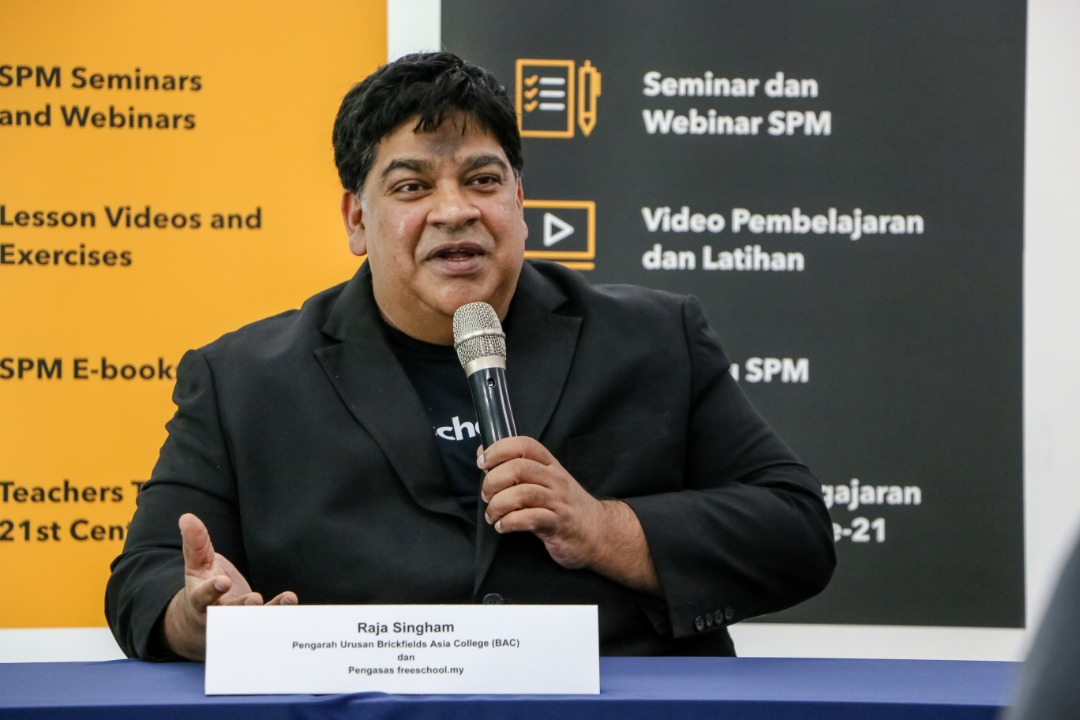

By Raja Singham (BAC Education Group, Managing Director)


The Sijil Pelajaran Malaysia (SPM) 2020 examinations are slated for February 22. The reactions from students and parents are mixed as most want the exams completed so students can continue their educational journey without further delays.
However, many are concerned with the impact of the pandemic on both exam preparation and the safety of students, parents, and those involved in the conduct of the exams especially in light of the recent rise in the number of Covid cases.
The Ministry of Education (MOE) deserves praise for doing its best in the face of an unprecedented pandemic, but there is a need to have very clear SOPs and contingency plans to deal with public examinations in these challenging circumstances.
We are confident that the government will do everything it can to ensure compliance with the standard SOPs for the conduct of the physical examinations commencing February 22 including; ensuring rooms and buildings are properly disinfected and have good ventilation, limiting the number of students in the exam hall and ensuring physical distancing, placing hand sanitiser dispensers around the school and exam halls, wearing masks and PPE equipment for protection, training teachers and invigilators on new normal exam SOPs, etc.
MOE will have to release clear SOPs early, so that it does not confuse or burden parents, students and teachers further. For example, what is the process if a student or staff in an exam centre tests positive?
The assessment of this cohort of students should take into account the lack of classes for most of the year, issues faced in attending online classes including lack of devices and internet access, preparedness of teachers to teach online, isolation, as well as depression and mental health issues, any or all of which may affect these exam candidates adversely.
It is also hoped that the Ministry of Education is already working on a Plan B and Plan C if the February exams run into any issues to ensure the education of our students is not disrupted further.
This could include running additional exam sittings this year to help students progress. They can also explore auto-generated question bank-based multiple-choice assessment used for professional certifications for all subjects, with virtual proctoring as a Plan B for future sittings during the pandemic. Virtual proctoring allows for web-based exams to be monitored using facial recognition technology through the webcam of a computer, tablet or phone.
Students who do not have devices or access must also be helped. Aid can be channeled through the Pusat Internet (Internet Centre) and mobile internet options, as well as devices provided by their family members, friends, the government or others wanting to help.
This should be seen as an opportunity to help disadvantaged students into the digital age.
Ministries like MOE, MCMC and government agencies like MDEC, telcos, technological companies and others, as well as NGOs should look at the long-term benefits both to the nation and to their businesses and step forward to help. The provision of additional exam sittings despite the extra work involved will ensure there is time to help these students get on with their studies with minimal delays.
All exams should adopt greater innovation, fairness and empathy in approaching assessment this year.
Exams are not the most important thing in life and are not the best indicator of how well a student will perform in life, even more so in this new normal. However, they stand in the way of these students progressing. There is a need to adapt and that process must be sped up to cope with the pandemic.
Most countries and international examination bodies have allowed their students to move on through different methods of assessment and I hope that the government and public examination bodies in Malaysia can consider and explore these ideas seriously. We must ensure that we have methods to allow students to get on with their journey to further their education and careers.
The Ministry of Higher Education (MOHE) and private higher education institutions (PHEI), should also look at a more holistic university entrance policy for this SPM and STPM cohort. For example, looking at other exams they have taken, or interviewing candidates such as in assessing entry, bursary and scholarships.
The SPMFlix Portal which is fully funded by BAC Education has about 70,000 SPM students studying for free, but there is so much more we need to do to help ensure our students and we as a nation do not get left behind.
We need to offer solutions and targeted help to those in need instead of just complaining and saying it is impossible. We can only do it by everyone working together. We know what needs to be done but cannot do it on our own. We need to work together.
There is a need to be creative, innovative, collaborative and embrace change instead of insisting on doing things as they have been done the last 50 years. It is for the future of our kids and our nation, and we will be stronger for it.
Send us your thoughts, feedback or inquiries at raja@bac.edu.my


